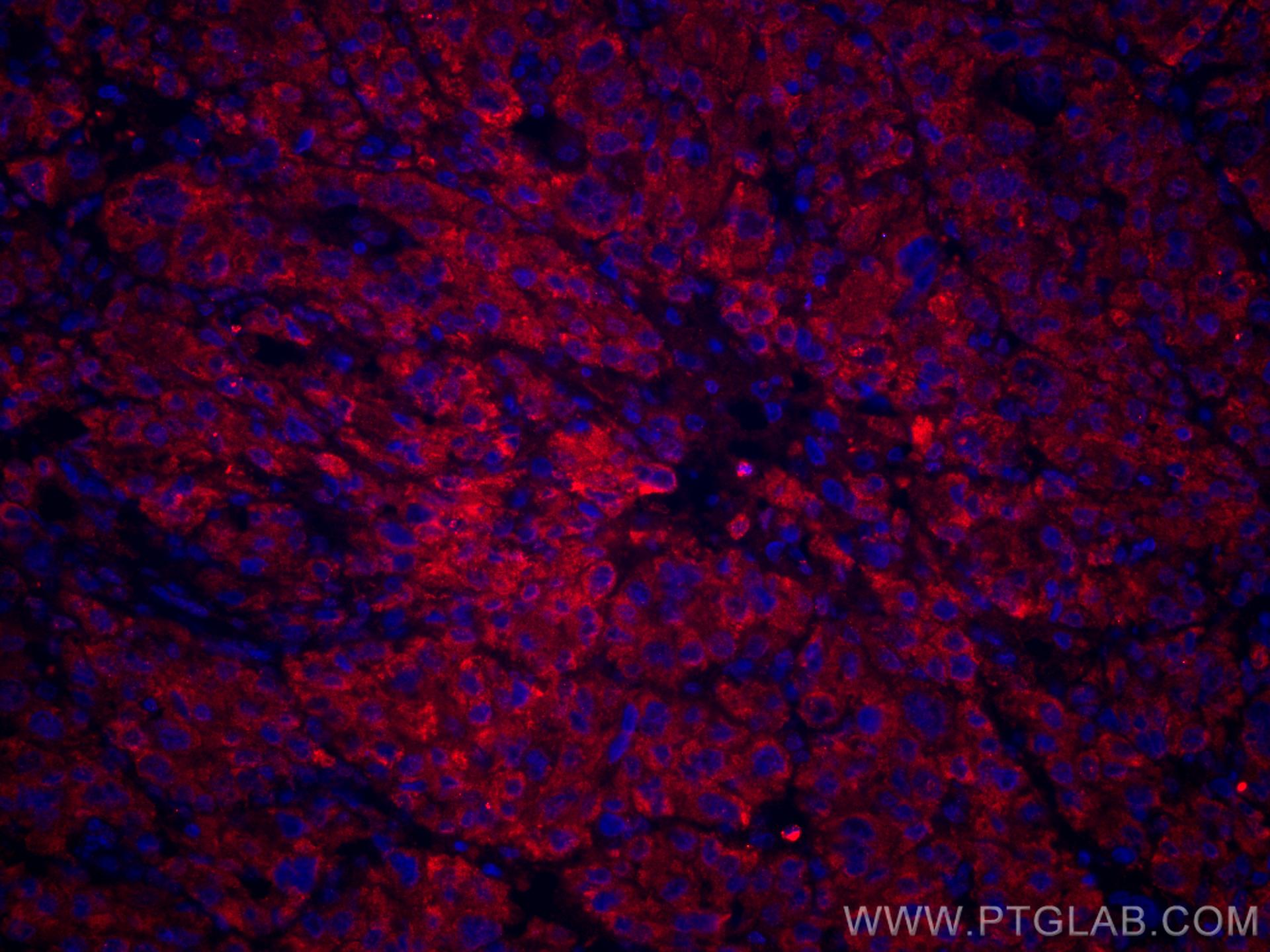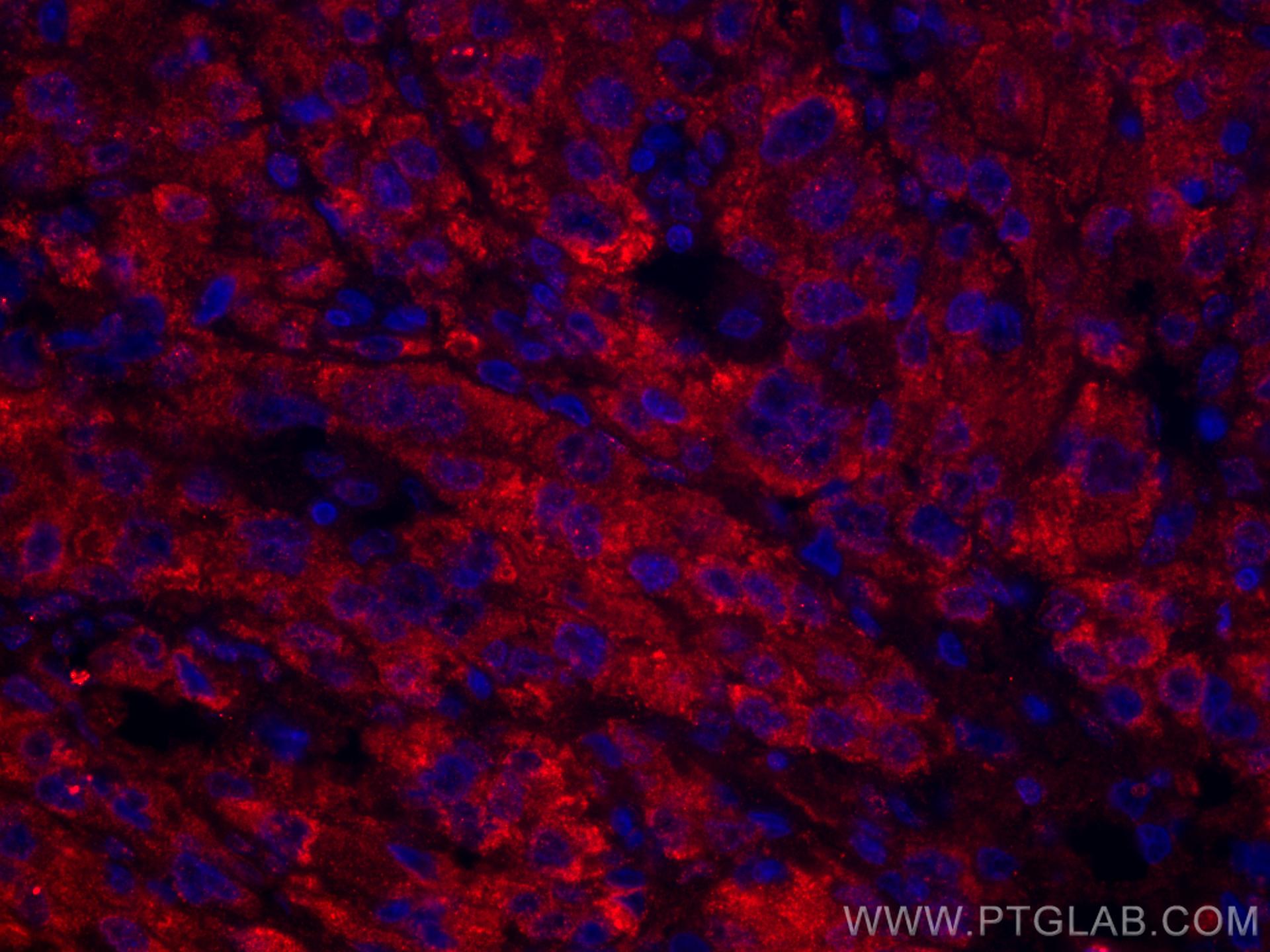Validation Data Gallery
Tested Applications
| Positive IF-P detected in | human liver cancer tissue |
Recommended dilution
| Application | Dilution |
|---|---|
| Immunofluorescence (IF)-P | IF-P : 1:50-1:500 |
| It is recommended that this reagent should be titrated in each testing system to obtain optimal results. | |
| Sample-dependent, Check data in validation data gallery. | |
Product Information
CL594-66134 targets GOSR2/Membrin in IF-P applications and shows reactivity with human, rat samples.
| Tested Reactivity | human, rat |
| Host / Isotype | Mouse / IgG2a |
| Class | Monoclonal |
| Type | Antibody |
| Immunogen | GOSR2/Membrin fusion protein Ag21393 相同性解析による交差性が予測される生物種 |
| Full Name | golgi SNAP receptor complex member 2 |
| Calculated molecular weight | 212 aa, 25 kDa |
| Observed molecular weight | 25 kDa |
| GenBank accession number | BC009710 |
| Gene Symbol | Membrin |
| Gene ID (NCBI) | 9570 |
| RRID | AB_2919952 |
| Conjugate | CoraLite®594 Fluorescent Dye |
| Excitation/Emission maxima wavelengths | 588 nm / 604 nm |
| Form | Liquid |
| Purification Method | Protein A purification |
| UNIPROT ID | O14653 |
| Storage Buffer | PBS with 50% glycerol, 0.05% Proclin300, 0.5% BSA , pH 7.3 |
| Storage Conditions | Store at -20°C. Avoid exposure to light. Stable for one year after shipment. Aliquoting is unnecessary for -20oC storage. |
Background Information
Golgi SNAP receptor complex member 2 (GOSR2), also known as GS27 or Membrin, is a member of the solube NSF attachment protein receptor (SNARE) family of vesicle docking proteins. GOSR2 is localized in Golgi apparatus. It is involved in transport of proteins from the cis/medial-Golgi to the trans-Golgi network.
Protocols
| Product Specific Protocols | |
|---|---|
| IF protocol for CL594 GOSR2/Membrin antibody CL594-66134 | Download protocol |
| Standard Protocols | |
|---|---|
| Click here to view our Standard Protocols |

